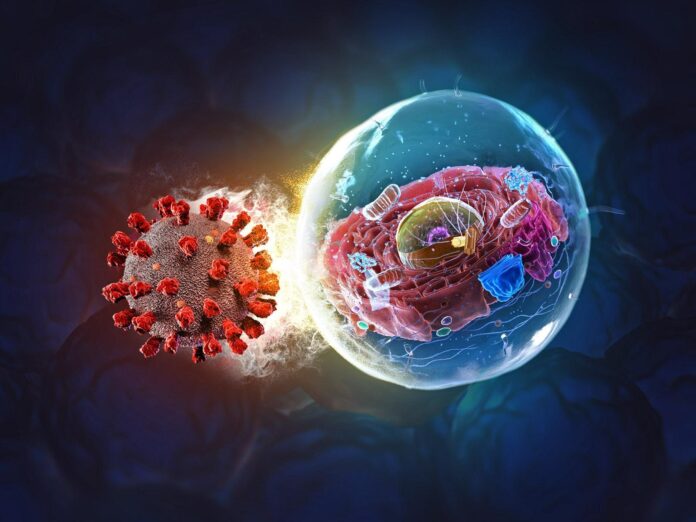Current tuberculosis infection tests struggle to detect the disease in those with HIV. A common co-infection, HIV can hide TB from traditional tests by eliminating the immune cells relied upon to sound the alarm.
While more than 90% of the 2 billion TB cases worldwide are latent—symptom-free and not contagious—the weakening of the immune system in those with HIV can allow latent TB to turn active, increasing the potential for new infections to spread and often resulting in fatal outcomes. Tuberculosis is the leading cause of death among those with HIV worldwide.
Now, Tulane University researchers have developed a new handheld TB test that significantly improves detection in people with HIV, according to a new study in Nature Biomedical Engineering.
Powered by a beetle-inspired chemical reaction, the device requires no electricity and addresses a critical gap in TB infection detection that has long hobbled efforts to eliminate the world’s deadliest infectious disease.
Dubbed the ASTRA (Antigen-Specific T-cell Response Assay), the credit card-sized device requires only a drop of blood to provide same-day diagnoses without the need for a laboratory or trained staff. When tested against the traditional IGRA blood test (Interferon-Gamma Release Assay), the ASTRA detected TB in HIV-infected individuals with 87% specificity compared to IGRA’s 60%, while also outperforming in the detection of TB without HIV co-infection.
“The goal was to develop a TB test that could be taken anywhere and provide quicker, more accurate results for anybody,” said senior author Tony Hu, Ph.D., Weatherhead Presidential Chair in Biotechnology Innovation at Tulane University and director of the Tulane Center for Cellular & Molecular Diagnostics.
“Current tests such as the IGRA are cost-prohibitive or require access to facilities that resource-limited communities don’t have. If we are going to eliminate TB, we have to diagnose and treat as many infection cases as possible.”
Bo Ning, lead author and assistant professor of biochemistry at Tulane University School of Medicine, added, “If your community has an immunocompromised population, someone may have latent TB. This can help block the spread of TB and ensure that no one slips through the cracks.”
To create a test that would not be stymied by HIV, the researchers identified two new biomarkers that could detect TB without relying on the immune cells susceptible to the virus.
After adding a drop of blood to the device, it must incubate for four hours to allow a preloaded reagent to stimulate a response from the immune cells. The reagent acts as a “wanted poster” asking if they’ve seen tuberculosis bacteria before.
To avoid the use of electricity, the researchers looked to an unlikely source for inspiration: the bombardier beetle. When threatened, these large insects combine two chemicals, and the resulting reaction produces a forceful spray. Similarly, two chemicals in the ASTRA are combined to propel the sample across a chip for final analysis and diagnosis.
The new device delivers results in about four hours, compared to the IGRA, which takes 24 hours, and a common TB skin test, which can take between two and three days for a diagnosis.
The ASTRA’s performance was validated using samples collected from a cohort in Eswatini, a country with high TB incidence and the highest reported HIV prevalence (27.3%) worldwide.
Increasing testing accuracy, access and speed is even more vital as TB resistance to drugs grows more robust, Hu said.
“The sooner you have a diagnosis, the sooner you can begin the process of determining proper treatment,” Hu said.
“TB is the No. 1 pathogen HIV patients worry about globally. If treatment is available, we should be working to kill these bacteria, latent or not.”
More information:
Self-powered rapid antigen-specific T-cell response assay for Mycobacterium tuberculosis infections, Nature Biomedical Engineering (2025). DOI: 10.1038/s41551-025-01441-5
Tulane University
Citation:
New credit card-sized TB test could close the diagnostic gap in HIV hotspots (2025, June 27)
retrieved 27 June 2025
from https://medicalxpress.com/news/2025-06-credit-card-sized-tb-diagnostic.html
This document is subject to copyright. Apart from any fair dealing for the purpose of private study or research, no
part may be reproduced without the written permission. The content is provided for information purposes only.

